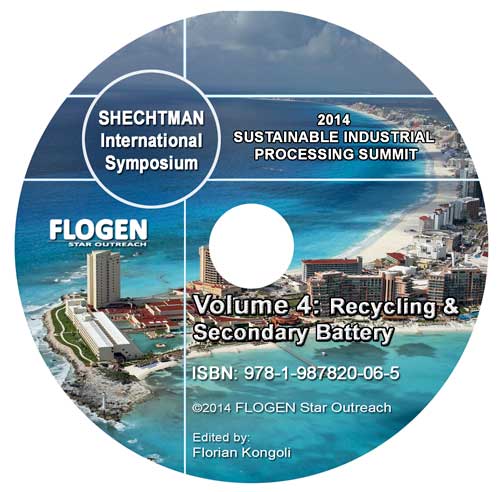2014-Sustainable Industrial Processing Summit
SIPS 2014 Volume 7: Energy Production, Environmental & Multiscale
| Editors: | Kongoli F |
| Publisher: | Flogen Star OUTREACH |
| Publication Year: | 2014 |
| Pages: | 528 pages |
| ISBN: | 978-1-987820-09-6 |
| ISSN: | 2291-1227 (Metals and Materials Processing in a Clean Environment Series) |

CD shopping page
Push-Pull Alloys and the Heritage of Dan Shechtman
Jean-Marie Dubois1;1CNRS-UNIVERSITE DE LORRAINE, Nancy, France;
Type of Paper: General Plenary
Id Paper: 247
Topic: 19
Abstract:
In this plenary talk, I will draw attention to A-B-C ternary alloys, in which the elemental constituents A, B and C are chosen in such a way that B-C interactions are repulsive, but A-B and A-C are attractive in the respective binary systems. I call such alloys "push-pull alloys" in reminiscence of push-pull amplifiers that are designed to amplify an electric signal. Push-pull alloys amplify complexity, forming complex intermetallics with tens to thousands atoms per unit cell. Few of them lead to the ultimate stage of complexity, when quasiperiodic order substitutes for crystal periodicity, which opens the way to discovering unprecedented properties such as heat insulation in Al62Cu25Fe13 (at. %). Many more compounds are known today, which share the same elemental characteristics (the picture may be extended to specific binary alloys).
With his famous discovery of quasicrystalline order in 1982-84, Dan Shechtman, the 2011 Nobel Laureate for Chemistry, has granted us with a fascinating field in materials science that has nowadays spread out to a variety of domains in metallurgy, geology, polymer science, artificial nanostructured materials, low temperature physics, and art. Push-pull alloys stand at the heart of the heritage and teach us a lot about the roots of order in Nature, its influence on properties, and by the way open new niches for applications. A short review of the most salient features of this domain will be given. We will begin with a simplified view at the way atomic order may be described in quasicrystals. The talk will continue with electron transport properties, which provide a signature of the breakdown of periodic order in those systems, made of metals. We will then examine surface properties, with a view at the potential application niches and one, yet commercially available, application will be addressed.